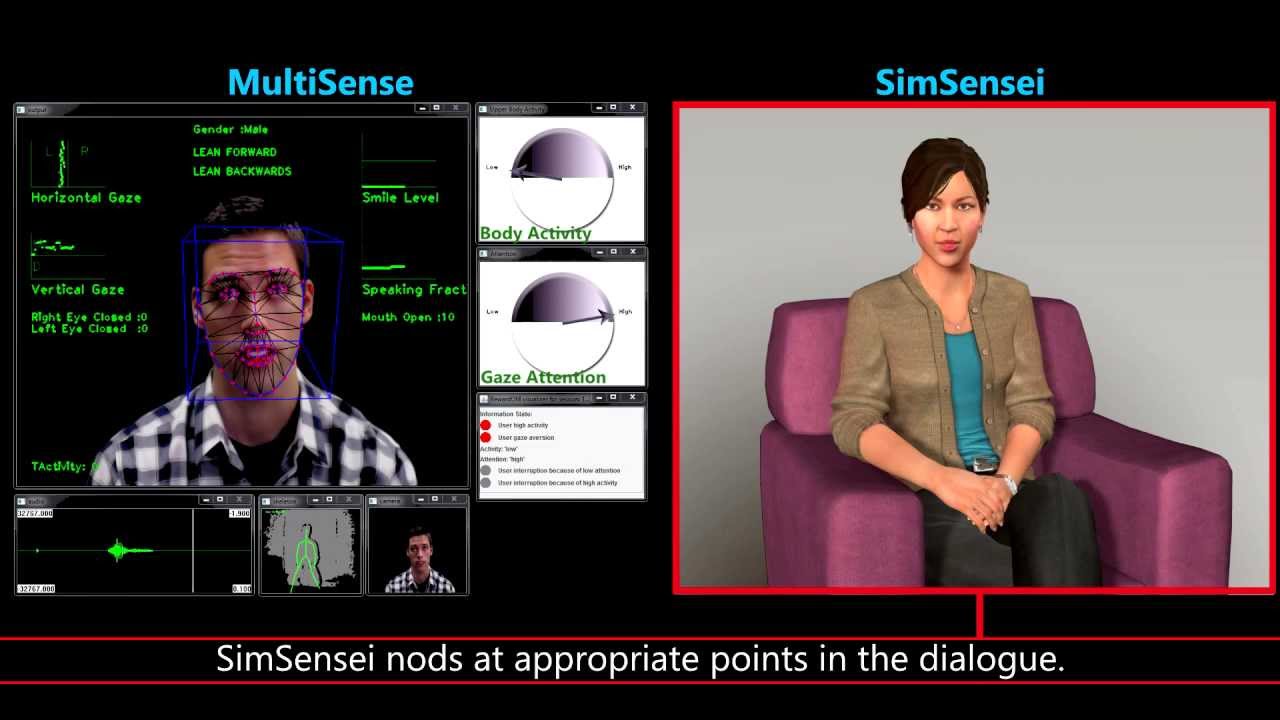Ellie is an artificial intelligence therapist developed by the USC Institute for Creative Technologies as part of a project called SimSensei that was funded by the U.S. government agency DARPA. It has been used to help American soldiers suffering from Post Traumatic Stress Syndrome (PTSD) and the results have been very impressive so far.
This artificial intelligence (AI) psychotherapist is designed to monitor micro-expressions, to respond to facial cues, to perform sympathetic gestures and build rapport with patients. Remarkably, research has found that “she” can read subconscious physical cues much better than many highly trained psychologists.
Ellie is designed to be capable of reading 60 non-verbal cues a second, everything from eye-gaze to face tilt to voice tone and it has been found very effective as a diagnostic tool to diagnose mental illness.
While this may sound weird talking about your problems to an AI, it turns out that most people that try Ellie actually prefer talking to her over a human psychologist.
Why? Researchers found that patients felt less judged by a non-human psychologist and as a result were twice as likely to disclose personal information, which helped them open up more and get better results from their therapy.
Want to see Ellie in action? Watch the video below.
If you want to learn more about how Ellie has been used to treat mental illnesses such as Post Traumatic Stress Disorder (PTSD), I recommend watching this short documentary:
Ellie is not currently available to the public but you can try WoeBot, which is an award-winning chatbot that helps with cognitive behavior therapy.
- How The Muse S Athena Works For EEG And fNIRS Neurofeedback - April 24, 2025
- The 10 Best Pomodoro Timer Apps For Remote Workers - April 11, 2025
- Hacking The Flow Cycle: Brainwaves, Creativity and Flow States - April 11, 2025





 This website uses cookies to improve your web experience.
This website uses cookies to improve your web experience.